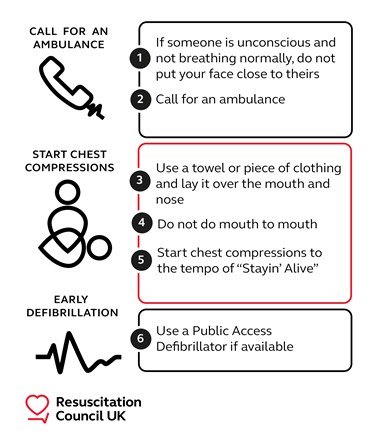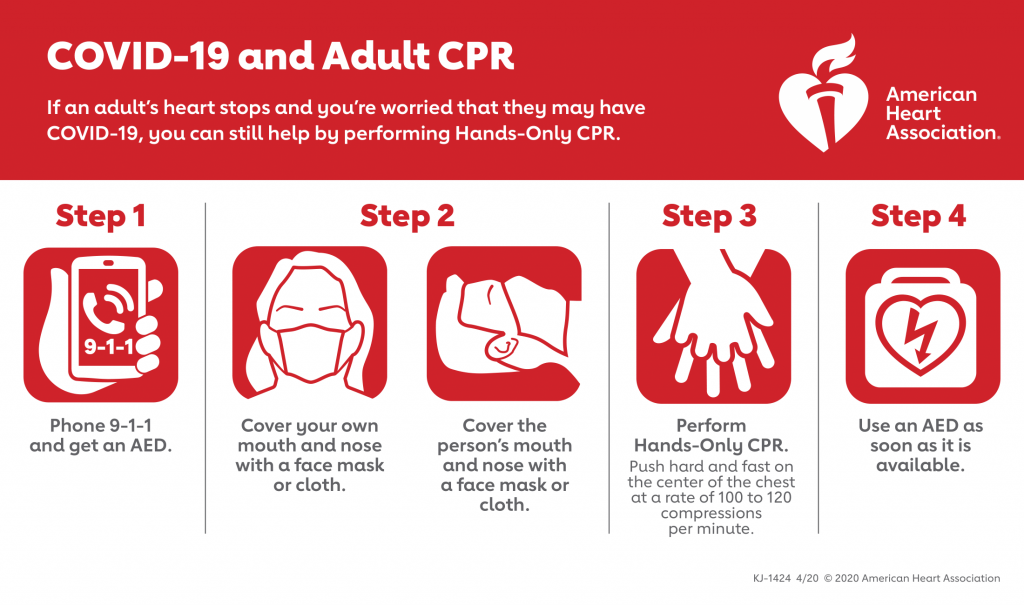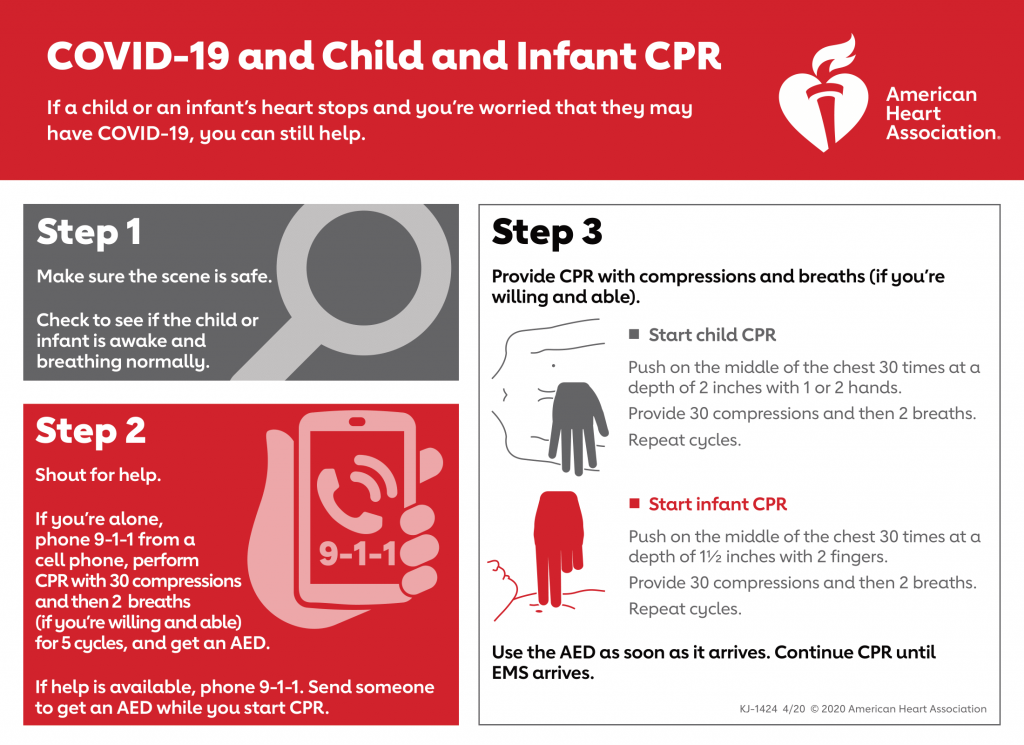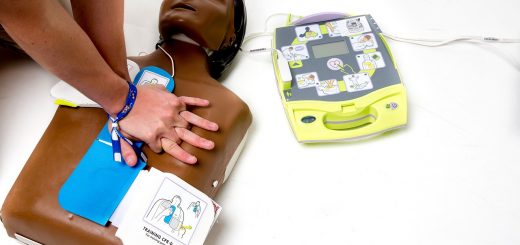CPR and COVID-19 / Coronavirus
Resuscitation and CPR guidelines have been changed due to the COVID-19 pandemic caused by the novel coronavirus. The international liaison committee on resuscitation (ILCOR) has published new guidance based upon a review of the best evidence currently available.
All first aiders and first responders should be aware of the new CPR guidelines, as well as their local protocols. Different countries may implement different guidance depending on the local situation with COVID-19.
There is a risk of Coronavirus transmission from cardiopulmonary resuscitation (CPR), although the evidence for this is limited. The main priorities in CPR remain effective chest compressions and early use of a defibrillator (AED).
The main recommendations from ILCOR are:
We suggest that chest compressions and cardiopulmonary resuscitation have the potential to generate aerosols (weak recommendation, very low certainty evidence).
We suggest that in the current COVID-19 pandemic lay rescuers consider compressions and public-access defibrillation (good practice statement).
We suggest that in the current COVID-19 pandemic, lay rescuers who are willing, trained and able to do so, consider providing rescue breaths to infants and children in addition to chest compressions (good practice statement).
We suggest that in the current COVID-19 pandemic, healthcare professionals should use personal protective equipment for aerosol generating procedures during resuscitation (weak recommendation, very low certainty evidence).
We suggest it may be reasonable for healthcare providers to consider defibrillation before donning personal protective equipment for aerosol generating procedures in situations where the provider assesses the benefits may exceed the risks (good practice statement).
International Liasison Commitee on Resuscitation (ILCOR)
So, in summary. For adult victims of cardiac arrest, hands-only CPR should be given with no rescue breaths. For child victims, lay rescuers should continue to provide rescue breaths if trained and willing to do so.
Different resuscitation councils and countries have produced guidance on performing CPR during the current pandemic.
Resuscitation Council (UK)

American Heart Association








Hi John
This is a great source of information for first aid and other health subjects and great fun.
Would it be possible for you to reset my courses so that I can do them again as part of CPD training, it would be much appreciated
Thanks in anticipation
Annie Petr
Yes of course, send us a message using our contact form and we can reset your account for you.
Kind regards,